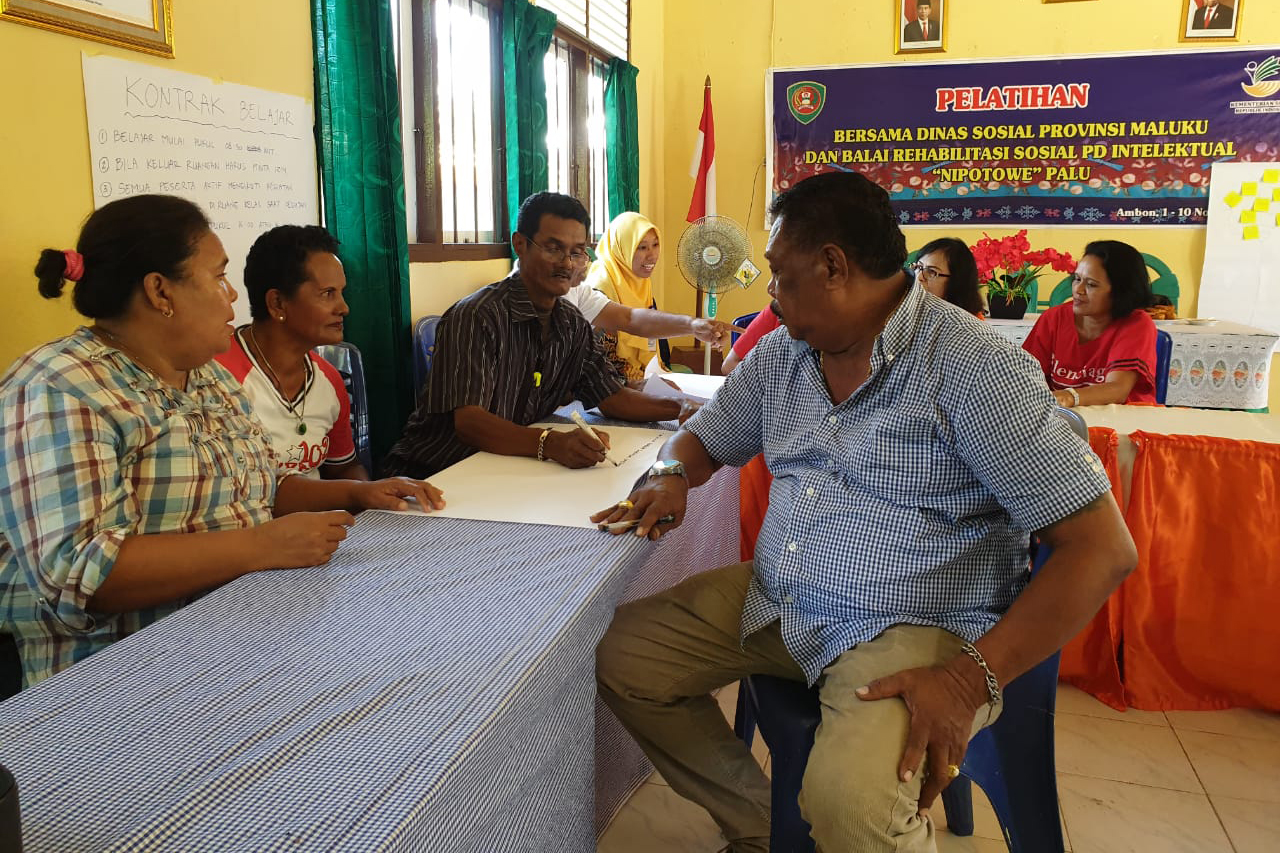Strengthening Parents in Nurturing Intellectual Disabilities

AMBON (8 November 2019) - The Partnership for Social Rehabilitation for People with Intellectual Disabilities (BRSPDI) "Nipotowe" Palu with the Maluku Provincial Social Service was carried out comprehensively where training participants targeted persons with intellectual disabilities, parents and companions.
This is important because the primary care for persons with intellectual disabilities is in the family. Meanwhile, social rehabilitation orphanages or institutions are supporting institutions to increase the independence of persons with intellectual disabilities to have service time limits.
"Services in institutions are temporary. Meanwhile, caring for persons with disabilities takes more time with the family. Therefore, we need to support each other and share experiences through this training so that we know how to provide the best care for persons with intellectual disabilities," said Doppy. , Head of Social Rehabilitation Section for Persons with Disabilities, Maluku Province Social Service in front of parents of persons with disabilities.
The training material aims to increase understanding of intellectual disabilities, causes and characteristics of intellectual disabilities, skills for care for intellectual disabilities and includes introduction to institutions, centers and LKS (Social Welfare Institutions) that parents can access to increase the independence of persons with intellectual disabilities.
"Self-reliance training for children with intellectual disabilities should be done from an early age, especially basic skills such as bathing, washing toilets, eating, folding clothes, etc. Although they experience limitations, it is very important to train them to be independent and reduce the burden on their family," explained M. Ichsan Nur, Social Extension BRSPDI "Nipotowe" Palu.
In the training session, participants discussed identifying signs of children experiencing intellectual disabilities and the efforts that parents and society can make to support the independence of persons with intellectual disabilities.
"Beta (I) have a child who really likes singing. He also really wants to go to school. So beta as a parent tries to support his needs. Beta sends him to school, a school for children with intellectual disabilities and supports him in singing," said Yudith, one of the participants when asked to share experiences.
"We as parents also need to support children with intellectual disabilities to adjust to the environment in which the child is," added Melvin, a training participant.
There needs to be a forum between parents of children with intellectual disabilities like this so that they can share experiences and share solutions to solve problems for each child.
 English
English
 Bahasa
Bahasa
